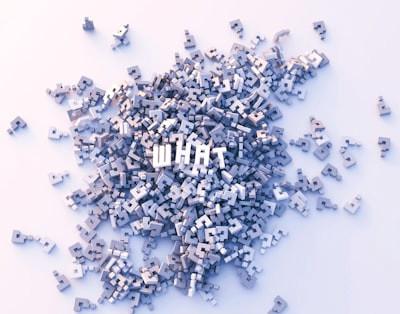What Is Aphantasia?
Curated from: aphantasia.com
Ideas, facts & insights covering these topics:
9 ideas
·4.52K reads
31
2
Explore the World's Best Ideas
Join today and uncover 100+ curated journeys from 50+ topics. Unlock access to our mobile app with extensive features.
What Is Aphantasia?
Aphantasia is the inability to visualize. Otherwise known as imagine-free imagination.
24
928 reads
Think of a horse...
What do you “see ” in your mind?
- You might imagine a lifelike image of a horse in your mind, while your friend might only see a dim or vague one.
People with aphantasia don’t create any images of familiar objects, people, or places in their mind’s eye, not for thoughts, memories, or pictures of the future.
We lack this visual system completely .
19
723 reads
It’s Not Just The Visual System
Can you hear the horse neigh? Imagine what it would feel like to travel on horseback?
Imagination is a spectrum – and not just for our visual imagery but across all our senses!
There exist remarkable, often unsuspected invisible differences in our sensory imagination ranging from absence (aphantasia) to extremely vivid (hyperphantasia), and everything in-between.
21
557 reads
There Are Many Things We Know About Aphantasia…
Aphantasia can impact our ability to recollect events and facts from our past experiences (autobiographical memory ).
Evidence also points to a connection to other aspects of human experience, impacting everything from education and career choices to reduced PTSD sensitivity and even the reliability of our eye-witness testimony.
21
466 reads
Fact: Aphantasics Can Be Richly Imaginative
‘Imaginative’ means having or showing creativity or inventiveness. Creativity involves a whole network of brain activities from integrating past events and identities to thinking about the future and navigating different pathways toward desired goals to invent novel things.
Aphantasics can still do all these things! We simply go about the creative process differently .
19
400 reads
Not Having A Mind’s Eyes Can Lead To A Different Way Of Thinking
Aphantasia is a variation in human experience. It is not a disability, disorder, or defect .
Nor is it a barrier to success.
Discovering you have aphantasia can lead to new insights into your unique way of thinking, insights that can greatly impact your life, work, and wellbeing often in unimaginable ways.
19
370 reads
Aphantasia Is A Unique Variation In Human Experience
An estimated ~3-5% of the population experience aphantasia, and another 10-15% are believed to experience the opposite, hyperphantasia.
20
396 reads
Aphantasics are brilliant creatives, inventors, authors, musicians, scientists, entrepreneurs & more!
Ed Catmull, co-founder of Pixar and former president of Walt Disney Animation Studios. Craig Venter, biologist who first sequenced the Human Genome. Blake Ross, creator of Mozilla Firefox. Glen Keane, Disney Animator and Creator of The Little Mermaid. Penn Jillette of Penn and Teller.
All have aphantasia.
21
351 reads
...And Many More Unknown Unknowns
Aphantasia and hyperphantasia are relatively new scientific discoveries [2015], and these invisible differences in how we imagine impact our life, work, and well-being in so many different ways.
Many we’re just beginning to uncover!
19
336 reads
IDEAS CURATED BY
CURATOR'S NOTE
Aphantasia is pretty interesting, especially when you have it, and I wanted to share that.
“
Rachel D's ideas are part of this journey:
Learn more about scienceandnature with this collection
The value of hard work and persistence
How to stay focused on long-term goals
How to learn from failures and setbacks
Related collections
Similar ideas
6 ideas
The secret to creativity – according to science
theconversation.com
6 ideas
Visualization Meditation: Unlocking Inner Genius
freemeditationscripts.com
7 ideas
Aphantasia: When You Are Blind in Your Mind
verywellmind.com
Read & Learn
20x Faster
without
deepstash
with
deepstash
with
deepstash
Personalized microlearning
—
100+ Learning Journeys
—
Access to 200,000+ ideas
—
Access to the mobile app
—
Unlimited idea saving
—
—
Unlimited history
—
—
Unlimited listening to ideas
—
—
Downloading & offline access
—
—
Supercharge your mind with one idea per day
Enter your email and spend 1 minute every day to learn something new.
I agree to receive email updates
